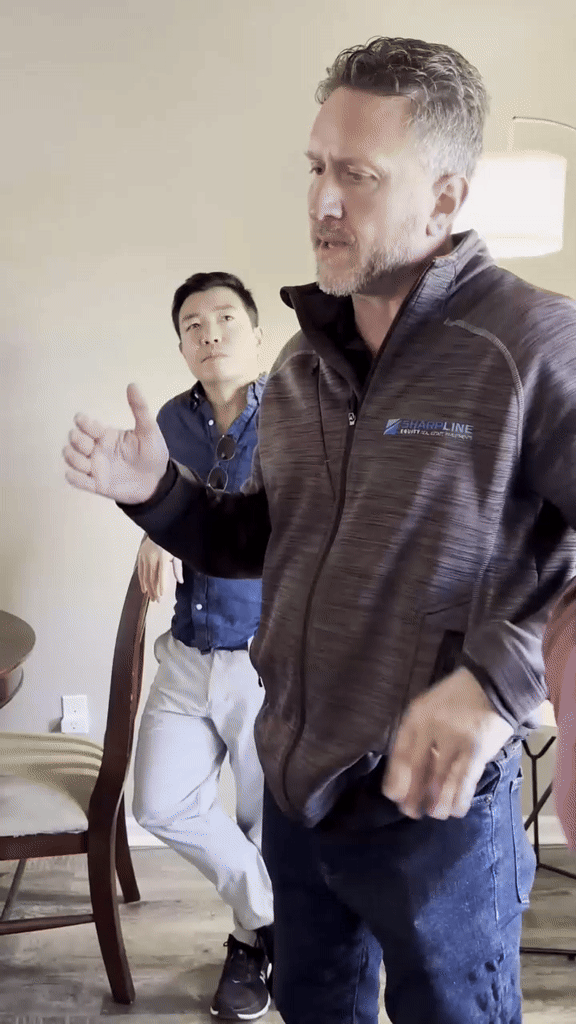
Write something
Property owner is the PM
Has anyone ever had a property owner ask if they could also serve as the property manager? Curious how others have handled this. Any creative ways to leverage this arrangement to improve cash flow or reduce overhead
Every step of the experience is important and can be tweaked
Most people think real estate investing is just about buying buildings. But the real work—and the real upside—is in the operations. Every time a resident looks at one of your units, they’re walking through a sales process.From the listing… to the showing… to the move-in… to how they submit maintenance requests…It’s all part of the resident experience—and every step needs to be dialed in. This is where great operators stand out.Analyze each step. Improve each milestone. Build a machine. Sharpline Equity isn’t just investing—we’re engineering the experience.

Hiring Guide: How to Interview Property Managers
I have interviewed dozens and dozens... and dozens of property managers in my time with Sharpline to help us find the best talent. This blog post is to help synthesize some of my best takeaways so far and help you improve your recruiting and hiring process for Property Managers going forward. Hiring the right property manager can stabilize your asset, protect your NOI, and prevent resident churn. The wrong hire slows down turns, invites resident issues, and costs you more than their salary. This guide gives you: - A short list of hiring best practices - The 10 most useful interview questions to assess ownership, systems, and performance - What red flags to look for Hiring Best Practices Define the role clearly - Unit count, property type (A/B/C), stabilized vs. value-add - What they’re directly responsible for: leasing, resident issues, vendors, reporting, maintenance coordination - Required systems knowledge (AppFolio, Yardi, ResMan, etc.) Screen for ownership early - Avoid candidates who blame their last company, team, or supervisor - Look for people who take responsibility and want to improve outcomes Prioritize real-world experience - Ask about what they did — not what they would do - Push for data and KPIs: occupancy, renewals, delinquency, NOI, turn times Assess alignment - Be clear about hours, pace, workload, team size, and pay - Ask if this role matches what they’re actually looking for - Don’t skip questions about income expectations and schedule Watch how they communicate - Do they follow up? - Are they organized and clear? - Do they understand resident-facing and ownership-facing communication styles? 10 Interview Questions That Work VERY Well Use these to assess both competence and character. Keep the tone direct and conversational. Take notes. Don’t settle for vague answers. 1. Why are you looking for a new role right now? - You’re looking for signs of ownership. Not blame. 2. What attracted you to this company and role? - If they don’t know much about your business, they didn’t prepare. 3. What does your ideal job look like — and how close is this one? - Helps you catch misalignment early. 4. What’s your biggest weakness — and how are you working on it? - Look for self-awareness. Avoid rehearsed or fake-sounding answers. 5. What KPIs did you own at your last property? What were your results? - Push for numbers. If they can’t give any, that’s a problem. 6. Tell me about a time you had to turn around a struggling property. - Listen for prioritization, clarity, and follow-through. 7. Walk me through how you manage resident complaints and maintenance follow-up. - Look for systems, not just “I follow up.” 8. How do you hold vendors and your team accountable? - You’re looking for leadership and communication under pressure. 9. What kind of hours are you looking to work — and what’s your minimum required income? - Set expectations early. Avoid surprises later. 10. What do you enjoy doing outside of work? - Adds context and helps you understand personality fit.
Understanding Constraints in Multifamily Leasing 🏢
Hey everyone, I am new to the content creation game, so if this video provided any value to you at all please let me know. Also, when I screen recorded my handwritten notes on my iPad the file was accidentally deleted. So I re-recorded the entire handwriting portion using my laptop so that you still had a visual aid. Hence why my handwriting jokes make no sense LOL Anyways, if you want the full breakdown, notes, etc. Please check up the link to this video in our new multifamily operations course here: https://www.skool.com/multifamily/classroom/a3a46b09?md=6a3ce78263d54f30864a832f3f2e48c7

Dumpsters !
Cleaned dumpsters are so important. It’s one of the first things I look at when I go visit our properties.
7
0

1-5 of 5

skool.com/multifamily
All things Multifamily, otherwise known as Apartment Buildings: investing, managing, owning, financing, raising capital, partnerships, legal, debt.
Powered by







